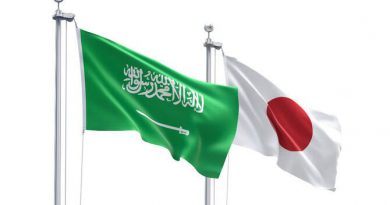ANALYSIS: Muslim Brotherhood’s growing threat to India
by Ajmal Sohail
That is why this alliance, primarily operating through Pakistan, is supporting the Muslim Brotherhood in India, hoping to use the 204 million Muslims in India to provoke civil strife against Hindus to hamper India’s rise.
Pro-India politicians, both in India and abroad, are becoming increasingly concerned about the activities and future goals of the Muslim Brotherhood in India. While the Muslim Brotherhood is an internationally-recognized “non-violent” Islamist group, it does have indirect links to armed groups and wishes to change the current global hegemony—which is dominated by the U.S., U.K., and other Western nations—into Dar al-Islam, meaning that they wish to transform it into an Islamic land and force people to convert to Islam.
The ultimate objective of the Muslim Brotherhood, as espoused by the group since the days of its founder Hassan al-Banna in the 1920s, is to adopt a political position of jihad against non-Muslims. The group has a vast international propaganda network and has spawned numerous militant leaders around the world, such as Abdullah Yusuf Azzam, a staunch follower of Al-Banna, who, in 1984, ignited the major Islamist foreign fighter flow to fight the Soviet occupation of Afghanistan. By the time Azzam was killed in 1989, he had mentored Osama bin Laden, the founder of Al-Qaeda. Indeed, Bin Laden later said Brotherhood ideas were key to the formation of his ideology.
The Brotherhood’s designation as a “non-violent” group relies on a literalist interpretation of its behavior, and requires ignoring its connections to militancy. In India, for example, the Brotherhood’s local versions have exacerbated inter-communal discord and created chaos on the streets with protests against the Indian government. These Brotherhood and Brotherhood-derived groups on the Subcontinent insist that the foundations of the Indian Constitution—which include the pillars of secularism, democracy, and nationalism—are anti-Islamic, and work to undermine these foundations in India, primarily by trying to provoke a religious civil war between Indian Muslims and Hindus. The Brotherhood’s vision for toppling the Indian government, creating Dar al-Islam in India, and cultivating revolt in Kashmir is also not exactly “non-violent”.
Two prominent Brotherhood offshoot groups in India are the Popular Front of India (PFI) and the National Women’s Front (NWF). The PFI was recently banned in India, which has led to something of a resurgence of an older terrorist-designated group, the Students’ Islamic Movement of India (SIMI), which works alongside domestic extremists like the Indian Mujahideen (IM), while receiving external funding from the Qatar-Turkey-Pakistan (“QTP”) axis, and having links with the Pakistani-controlled jihadist ecosystem in Afghanistan that includes the Taliban and Al-Qaeda. The outside support for Islamist militancy in India is important, but the domestic sources of support are crucial to understand.
The Muslim Brotherhood’s desire to create civil strife to destabilize India and bring down the government of Prime Minister Narendra Modi is being abetted financially by Indian opposition parties, according to sources. There are some who see the Muslim Brotherhood’s recent upsurge in India as primarily resulting from Indian politicians trying to use this dangerous group as a weapon to defeat Modi’s rule. This would not be completely unprecedented: there were Indian politicians who exploited the Naxalite (Communist) terrorist-insurgency as a political weapon against the government of the day, for example, a far worse situation.
There are roughly as many Muslims in India as there are in Pakistan, a nominally Islamic state, and Muslims in India—unlike in Pakistan—have the freedom to take an active role in politics. There are legal mechanisms for parties to collaborate to remove Modi’s Bharatiya Janata Party (BJP). The apparent sly support of a number of Indian politicians for the Brotherhood is, therefore, highly irresponsible. The Brotherhood does not just want to replace the current government; it wants to overthrow the entire ruling system, especially the secularism, but also the democracy and nationalism, because the Brotherhood sees these things as destructive to Islam.
A significant motive for the Muslim Brotherhood resuming its activities in India is that as the country becomes a rising power it is drawing closer to the U.S. and could soon pose a major threat to the anti-Western bloc in South and Southeastern Asia, which is backed by China. That is why this alliance, primarily operating through Pakistan, is supporting the Muslim Brotherhood in India, hoping to use the 204 million Muslims in India to provoke civil strife against Hindus to hamper India’s rise. The Muslim population in India is the third largest Muslim population in the world, and the concern of Indian politicians and security agencies is that if the Muslim Brotherhood’s roots are strengthened in India, it will become increasingly difficult to govern the country. In a situation of disorder, it would make Indian Muslims more susceptible to being recruited by the Brotherhood and other international terrorist groups.
Article first published in European Eye on Radicalization.
Ajmal Sohail is the co-founder and co-president of Counter Narco-terrorism Alliance Germany and a national security and counter-terrorism analyst.



